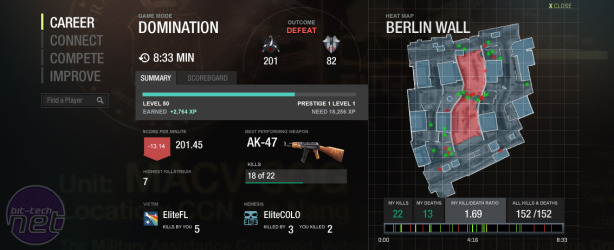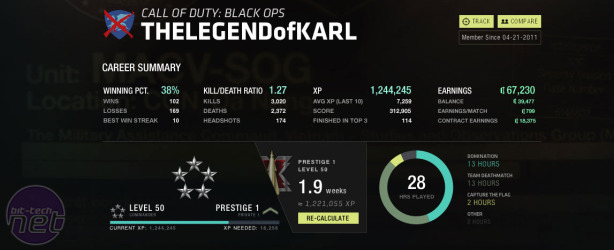
Critical Hit: Games as a Service
Hands up if you're surprised that Activision is launching a premium Call of Duty service. Anyone? Didn't think so. Whether or not it turns out to be good value for money remains to be seen, but the basic service has been inevitable ever since every person on Earth bought two copies of Modern Warfare 2. If there's a surprise here, it's that they've resisted so long.What makes it an important story though is that, regardless of whether or not you give a damn about Call of Duty itself, it's the industry's first major bet on games as services rather than products.
That doesn't necessarily mean subscription fees or even paying extra will become standard, regardless of how much the money-men salivate over the idea. The simple fact is that some games can support premium services, and some can't, but very few have the clout to get away with extorting too much - especially if it unbalances the game or splits the community. Modern Warfare, with its £10 map packs, is very much an anomaly - albeit a profitable one.
Call of Duty Elite aside, there are some real benefits of the games-as-a-service philosophy. The big one is that it offers to increase the lifespan of some games. Valve is the champion of this, with Gabe Newell recently claiming the service model as both its current focus, and the next step in episodic development (otherwise known as 'that thing everyone but Telltale failed miserably at'). Team Fortress 2 has run on this model ever since release, with updates funded by the resulting sales spikes, and attention kept frothy through cartoons, humour, and the occasional overpriced hat to raise a 'Grr'.
Indie games are at it too, with the likes of Minecraft and Project Zomboid not simply selling pre-release versions to raise funds, but making their open-development process part of the fun. The attention that Minecraft gets when it reveals something like rain or in-game maps dwarves many big game release announcements, and the experience of being there to play with them while they're still new is a major draw. Where most games are designed to be finished, these are designed to be expanded.
Commercial, single-player games are in a more awkward position, but still stand to benefit from a service model. They don't even have to stop selling DLC (as nice as it would be to get it for free, especially in Special Editions).
As a not-so-random example, imagine a game such as Fallout: New Vegas being released as-was... ideally without as many bugs... but with a year's worth of planned updates. A big in-game gambling tournament in March for instance, complete with online tie-in. A couple of new quests to whet peoples' appetites before a DLC pack. An ARG in July. New monsters showing up out of the blue. Anything is possible, keeping even a fixed core story active, evolving, and interesting in the long-term. Any big event is a chance to get more people into the core game. More people with the game installed means more likely purchasers of any DLC. The result? Just good business, but a more effective kind than 'So, we made this. Give us some more money.' Ask Valve.
The catch with the games-as-a-service model is that it can only work as a two-way street. Episodic gaming failed primarily because the majority of developers forgot their part of the deal - that episodic meant 'regular' and 'guaranteed', not 'shorter' and 'immediately cancelled'.
It only took a couple of big failures, such as SiN Episodes and the eternal wait for Half-Life: Episode 2, for the entire concept to fall flat on its face. The same will be true here too, and in their hearts, everyone pushing the concept knows it. Done properly, games as a service offers the promise of a whole new dawn. Done badly, it's the perfect way to turn the goose that lays the golden eggs into a particularly unpleasant pate. The handy thing, at least to some degree, is that the people with the most incentive to try are the ones with the most to lose if they fail. Hopefully that, if nothing else, will keep them in check.
And if not, well, there's always anger, screaming, mass boycotts and armed rebellion. Just saying, Mr. Kotick. Just saying...
Critical Hit is a twice-monthly column which analyses recent news and trends within the games industry.

MSI MPG Velox 100R Chassis Review
October 14 2021 | 15:04











Want to comment? Please log in.